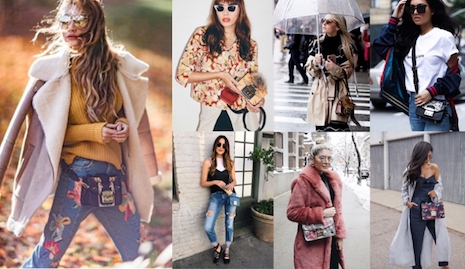Social influencer marketing has grown in popularity and this year has become an established tactic, but now brands need to fine-tune their practices.
According to a survey and report from Influencer Intelligence, social media influencers have impacted 61 percent of those aged 18 to 34 in regards to purchasing decisions. These marketers believe that relevance is the most important aspect of influencer marketing, with 100 percent agreeing.
“If we compare the ‘Influencer Marketing 2020’ report to similar research we’ve published in the past two years, it is clear that influencer marketing is a more established practice within the marketing function,” said Priyanka Mehra Dayal, senior content marketing manager at Centaur Media PLC. “Now the approach marketers take towards it – from identifying influencers right through to measuring success, also needs to evolve.
“The report clearly demonstrates the need for better metrics, complete transparency and more meaningful partnerships,” she said. “Marketers, within the report, unanimously agree that relevance is the most sought-after attribute in influencers today.
“In fact, 65 percent of respondents consider this a critical factor when selecting which influencers to work with. Three quarters of industry respondents say influencers should already be a fan of the brand prior to collaboration, with 43 percent of those claiming it is important for influencers to have organically endorsed their product before without payment.”
In collaboration with Econsultancy, Influencer Intelligence surveyed 1,173 marketing specialists and 500 consumers on influencer marketing.
Influencers’ influence
Consumers are looking for social media influencers who produce authentic and engaging content, and 90 percent of marketers say that proving authenticity is crucial.
However, with this new tactic of branding also come dangers.
The top concern for brands partnering with influencers is the possibility of “fake followers.” Often, inauthentic influencers will pay for fake followers to increase their social following numbers, rendering sponsored posts less helpful for brands.

Furla works with influencers. Image credit: Furla
Eighty-five percent of marketers use engagement data the most to measure the success of their influencer campaigns.
The majority of brands are manually searching for influencers, but this could be better done through automation and data.
Micro-influencers, those with less than 100,000 followers, are still very popular with brands. Since relevancy is a key factor in influencer campaigns, the niche audiences that micro-influencers pull in yield fruitful results.

Virtual influencer Noonoouri stars in a new Buccellati campaign. Image credit: Buccellati
These influencers are also considered to be more authentic.
Even though guidelines are in place to ensure that influencers are properly labeling posts that are sponsored and more than half of consumers state that disclosures do not take away from the post, a large portion of marketers admit to avoiding doing so.
Additional insight
While social media and digital forms of advertising are becoming a more integrated part of luxury brand’s strategies, traditional media still plays a part in the West.
In Asia, social influencers are even more important than in Western culture, because of consumers’ distrust of brands and reliance on peers and influencers, said the chief strategy officer at Launchmetrics. In a discussion at the New York Times International Luxury Conference on Nov. 13, he explained how platforms such as WeChat and Weibo soar in China, as these consumers seek an increasingly integrated life (see story).
Many may associate luxury items with a particular price point, but a new group of up-and-coming affluents cite quality and reputation over price in terms of declaring what is luxury.
In a survey by Engel & Völkers, the real estate firm focused on the group of consumers who are not yet rich but are high earners, nicknamed HENRYs. Eighty percent of this group associates quality with luxury, followed by excellent reputation at 64 percent, with price point coming in last with 47 percent (see story).
“The most surprising finding was that 33 percent of marketers confess to avoiding sponsorship disclosure when possible as they believe doing so will diminish consumer trust in the post,” Ms. Dayal said. “A further 15 percent also admit to regularly circumventing the rules.
“That’s despite 77 percent of marketers saying they are fully aware of sponsorship guidelines,” she said.“This goes to show the ambiguity that still persists when it comes to sponsorship disclosure.
“What’s encouraging however is that within the consumer survey, 54 percent say sponsorship disclosure such as #spon and #ad does not actually take away from the credibility of a post providing the partnership is genuine, proving that marketers need to focus on the keeping the content relevant and authentic.”
{"ct":"FDuKDIhVXllmEve8YW8o5c\/iQVb5AoBFerPcyptY+TD6oganL98SiBsXrpzYkLDppXy7WHwvJ4VhrtbI2urEN7XcjHi3hFlgMfTldq2DpfkmuWb7HwiKG4E+cEpG5CqLT6W\/7VinobdDXHMVqycWGzZ8fJEu4zuZvKHfe1EpjclAGz2ehFR2h9x1zeI+Ltk4s\/MdSNmfHqiDaqtAmZNM5HSd99fph8cjGpHdGpLlkgSYL+5dB0Nw1sMLbR5NfeaXHVPMUFedFrp0XQ8apBvLqZV3wiQI5zDMqOc0YqKTb3LUQsVD9lnCqNDFMcyS7GRk6wxyY51TkMIka7JxKaOjSMRGyYScZI+QkEpfzlFIjkOrrd2hmT0Lk0Ni\/hnTZCYgz\/M1GDZAShSjZIp+WyjgxUzFIp\/JEVF1uB4+IJ7fVrCGhRzqy5Sj3iea\/Ij98Zjvsam67Qc3v9AcW15SUhM8TBCrmZxz6LbQpVyJqBnMogqDpKMsWqoyMnqwXoUOmYsB+yqmNHmXlcyWJiB3aQRvaFqAe\/YKc0YsUxIu9fsQ1EBx2\/AMXJty0dZ4i2P1VDZzjNc\/Mli\/jtlGKhJtH5d1QXM4kWzR6nr6cIKNMhVQ35h82gi+R+euQ2YfnMxZ8IyVC58FjyPa7Exl1ixeKHOTZrcpRFlNPXTNVyNJp7SJyQs1kZhnfBuf1X5eZlRnLUCtJ98EYfbM\/N3UXJAijffXTepJsYUuWBtxVRs9KoPyqpSO8HcnPYMefz0TwPTNcT7bwVkJpSiujEfEEsBYEOdU\/yE9jdxseoEhQ8NYdNF3Qa89dahUg9GDBKhmwX9SegIOheRyu71PCVS9TROGJO715\/XesSqXdq\/jnzIzM\/t80KyYZe4JMiukB9msWsGGAORHMGjuHmG1Y1TzotaQ8s3wnyQlrwUTn3Lqo4YdR0E+F01dNL4YAr9m6K\/S7dxRJQxD34dRe3o\/LBWZNew5I3XpNi9mypuQeSleqInZiP45XlBsav5UjQGDIG4Q7oTp8ABOD2hNQE8cuoMsP66TW98IJfTEVvh2b0v\/kO9T29340tZ2+idcIA9KMsoCzFxvVl2QYnX2gSzHLgn7OG0hrcOEbCa3skkft+lnYgp5r41q47mklM1ads2XAeLLB4M6SXl0OnoQLuPBCVnKR79FYEIeIza26vg6uCHmXQQWtX5H0s2C0Ueef75quMKPWQyCD5sxIF4UtZU4hcRKUxHJxnSne5nA4TwlXl3nu6HS6ZdoZPqZThjHT9xMPV9X3AYWd\/BaTxuPMNULRl8nCUzYEEdWj9TUZjofLxPsEsQ3echV7tsnMTGcUj\/+yH2Pm3\/iAb\/\/4aSOTOSP3awyWLNBjJI91zfZ+RFbPHu6WMJx6iGaJ1Jm+8cKClhg9lOfRAAe4aCjN+dsDl7QJMKAgJwz6LuuVrYqDid3JZF3+FDGKLvcR0QvaetJL8\/yV+9MuUB2IT2VWo6Mfk\/tJgwobjUkHbWGXB4\/ajYMFAxemsKJLZKRQONuWe9YXELdH9fC5bR\/s8uNQkITs\/6mFgJ1uBsItMDXGLCOgnTbhSLI0WFzVbFKwG6IFqQge3q+YFseep7lAq57xkLqZGtUjh7Z0M6jwR73k7JS2rPhIUY59hR3iTH6AjQOxAI8nwhrB8v7zWan4MhpkvimMpm9R++AfSdiojjYal6QHYaKPOTjyIt9arX+f4m9qumXdir3on8oXbhKD80tl2C39BuVxUP3PlvGjW5I29Yx9W4ch23HTP1Uld+IzmwjDuqZqY52sXYR2w5jXHLT1SJHhyzOVxMbm+n9AZvsfdqyBT\/ywUWkuWgyjf6JyHsbAwlzmsI2+WW7yHZizT07UQlaA\/kLHWr6bM9B39uaM9KmfzM42UEWAkL72xx\/eJ5T800V\/7G+ucM7vTCTiBM+jOEkVA5MkHQA6ZdEj2kUH7gVHssCQ5tQaOyAlDUuJtbnW9Jlic2xMxWBlQe2p0JnGySKxXLGMPZbQqEJx7T53x9sYX9msqWFBqz29hXK3xdOPtixcFHtjAb3SDZIQdnrdxktO3T72IfYPrm\/94JXKfFCeExUBATFyBU2jmYol8W3poGyq7aiH\/tQwAw+9Crk8fii2GRE89jVCfHcc9pUIkyuNFuNB5ljXUjJmtsJ0A2sEWhNW0i+HlAgqd9fu7xprNl2F9imIjRwHN+RIsep1+atxcceS7XyElS+Ex7R0jXYzaws75UPqdnya77sHMyzAZT99nh+XqpxFTA0uVer3bLHzByA8zocJgfNeBCU9UBPAeBMk7zPUOahr8jGpY0wpKxrj0+Y0Dsw0dxWcVywnmPcIDUIfg0NNElWqMeb4hWX1LaykzXlj4Eur1AQWPzP\/PfRmACbmiXlu0byklPd6llN\/kMz2+zbjC77118ctMHueYxyfT0ODv2clPtABQO5XMp\/HCVDyf+t5sjFpbYqEcnw78\/DERt78ZyGsBnejroHJL0la8P5uEbVQthk36PfZm0xLJN7decmSa2VVi5UEfRS+KEE7RvCtHfg9XqyaVSC1ya4DspV7efI0usZ7kjxmCeoXB2u3L0C7gcU75LQeDkVZgLL+PQgSIl3CCHGBTRJcV7+3yMFtvo2bjBAbYj0grYtdBmrU2nDEmaarHBOBRphP2dgZoEhionGnKfbOvR\/poDF8ielXahnT6+6JjbQnf3KaiDNVcHxcwgaykEI\/Rad72ckU98VsAZbSfrRHN5wHvi4ZZOfJzS+s9podMNz3QrABlfpkQvxfJT2FqA03bNv9zgvXgYPzk33rdCtGgHNNVnRtDIHWtPuFWXGw\/ZbF\/pWF3IJkRI9X8X2m57phYJ9IVV0PdN1wbsOpt9FRkmGUnz5GulnPwlrvOWQx2L0\/6hjmrUTISQSM6lX6HZ9paFwtIJCO\/RPJK3I9PyWnBdkmo3rHYZdWabJg5wJTKsN7MgKJYwjEvNCJh23r3CdbkY+Lk4sKHGBFYnsi6N\/L0N+xWPKCLm1SsLpk8tWJizoZxDUr0vWQlldx6U7MT7t4mAFAumHk6xnsJ6hLY6JYtX2cvbbm3\/zl0\/ZYMsMif097Ye1\/4zHIdnLc01YT4dknLyOj5UIGhZdajFF\/vzmG8FOkoabRD2lo93Ci9Ffi6A8W897wPbRCzX+D1+K9GIt4dRAGgF4jLN7\/5nnqCfjgWTWzNhKnA3pHTnElS5GxgDg4I3gcdEu09jZ4eHAQTBQvkRrBLixFnSzRhAescLieVMINW6LfmqLWJdpP\/IHwa49seVTyWNEqzbakm27+NLOUc8fbXXFCtHfOrC9qx9JzigT6Aikstmj5xQPCOxUMfbn5YJgjkYh3Nu9ndbsBHVJjObgK8vEd5SbKqvakgcup9RcvUi6BP+lZS\/Jd1LLCpiQKkLdwOde3u4hsrObm2heKO7\/iRmLMN0nBjyAK5dLm5+n10DtLR6LIGNRLnnv2cQTpU1nl4AD7NUdR\/Q\/6eTMGTfgRGxdO2ixmMFhNuAE3n\/LLY7cqGge3eQ7mz812WvSEenZxN7sC13Fh2wUSycRqWB9wphxuzko164YqnENDzAnwPJmeEfOngBXd0R8EoIubJvv5IXENYUjmy1xnQFMfrU9j3\/mevmrd8CJEsPIaJOx7J3IbAlP13F9OTp2y\/AIDNq4HLwC86zju7Wz5GZk+50zCfUVCtMrDMSk93W+Bj8\/9VPR6PRMeINpI0nOYuN\/M1+McyBQkIvMUSSHDbfMcZFi3n6U7ZpidFIhBM37gwLL6ugqClbD0HvHYpqJP9CX67uTyXt\/HJJhYpCbr3mVzAe7ReiRQQpYw+BXubbTn86M4Cs9meOOElvMTczCvQcQY+RwIGOTcWTSdrOLKWNPGMjDJY3NPsYZ5J0UdJVMgMrZ05R\/0XT+G9H\/4QSEmUI\/CNiHMTfeFPmOLv2R9HruJYyWlw3Gw3e6bDacxN+eiJVeQK9VB3NlzKsjnzpfUP11pNZnE+V4SRM1lMTD5j1Ja7CkJ00LK2+wYDnBVhOtKNaxq3DCDgbM3vCPs6\/6VPngx9QblyTW0hOQew3C7du0lqSTqtSKAcXauREuHk2R8dVLrDlmoAdoH001W+IHNN5DZXhXkdV9uMtxmOBBbkNLwU8kMCxl\/Xvtplj5LvqIU1hwgwNlVbQ4Sir5lMVXJcWnHt67zgaxN3acXbC0bHBPWWrb6qjtoh\/OJGXXDF7\/qx9TZsZqxPRH73U5ZVtIsXrNf2Z3AE\/q6dw5ArhQU+wSw36MABFIcDJFv2UyCRJ7w1bNy2eMC4GNGQw3WinCS4qoIJipJJFim7Rpwoj4Yk3y3FHPFtjcV91SIppx5U9efAQ+S58Lkgvst\/llV9M3bSwNirOPDa31wQN3r1yYkugVg4f2lL3ccZ\/\/7sZ1ftUeIrPm7UpMSRraRhH5rYUgPFG+v6YSisLLQPrI78xhrXJfWVbMI4m9Of\/jmKrG9ha0BWAhNA\/PT70+WDrigkTtO3jk+1isQwlqoomzLq\/lucYP1yP+Ks683KrUPSXQ2AR6Dyi82Qs2buNI0kRuQQjNZScC5B5iPdDxC1tGVjsugyBsC2PxDDjq6jGod+pQZh0PueP7TImsetcYdsvtPwAzE22CS6BObkoYj\/rH20+q0pyvGwR+UziBaAfss6p1Cb7ZqplZkeErnetpbcb1pf1DhWKAKqinPwZAnPrmbfuRW+bz1BT+nZy83Gn7EE7K\/hf1Q8tU5vdK4OzA1dGDLkHZdzy8ttxtioVXTeKJcLtMehKZ9FfctpvYlRtQccCFgkt8RQGz3Tpc8LJb\/Pkvg3DwYtR+XT8lqfng1mABwUuk9KVlmqXUr\/6vHBff7Td9AsyWk65EHCO2xOmRPoTxHj0Kq0SEmwqvcIvRC60yn6f1IRb4RMuJJL05TdVaTCxmNOZmcRWc8zUpoZdq6AV5LZPAW2BpKcafafka6GermdPyN4HvLQpja8SNCRHVMEf13Kj+EdD\/LbdP4s1ycgyre5AMnYvOiIYdzw4rrULpT+s8\/B7HljZUvnrqax4JLLe0QiNaOjP\/ioMnYXtWX6c2W9g8L5plCIslRHl5u5pwbVYOwBI62GeYpE6xTINZ6z8n+lMptPWr8iIw7Breo41tYYfAtghg0kAcGhfoIXL6IPHpdEutLQdPXDMbTvm9Se6Dx2PVUn6myADoylNfs6Gd45H\/fZME+RdAeuTZuOPM4L1+rqSSbES0AmXvqp\/Bjmzzf5xlT8N1XfTOWkL8h2BEsuLCtuCOPmA06OQVFu9dwciht6UusJ47VgH855YASVIKEyfHCqlgCvrBjysIlCXN7lvj9ZSYGAzdKAvhYHx8f7E\/svMGPirEI5wRB3KJYz9y2AcXnFciFNsHG1F+gHpls3wXgFZXYv8zbqDZaOJdNW9nIMxnLe2aCNzyXEtOcanwimGyjbCx\/tnLPJlUyToeil4cX\/qIjwR1k3FoUByUN2QVojHlF32kQQUEtZu\/AdxUV9ioi6aFnfQ0ksGOmGilO2sIarxitXHTOWPRGQUZVTCZ4GRuyYUTtOE5srw8a0UfUcTEnRwm7r0EuCSbHrfme4CM6EWLnGmGBEE5MnGbkbOqDZSl91ONcXeK\/+nhRPxBpfbXnVcaC2EE\/D8ZePrLxbImNG8Vi\/F79Vs8zgxtscYIbjgopzEZzY\/jUpITjy72Civ9\/ieVgW0r8EG2fvuD\/8ZiptkNYdJhrRyHt472jJuAKICMnCTwQHH4pkuJTRz\/hVrXapuQM263295gNWboP8tCb10IzJLuiaZ93kH5xRu2NOGCJByp4C1yrnyG5ghxffEv3esjjqLiyeRn1+tLj1POlrxmDrEmZjHbhoSYShgzByrAIvtfsuJzlkkS2h4YvnKgHcyL1SBN2W\/UZbQfph2dTDMDcwdD+Dxs2bpyoeMCJE7Bv1D0YW56YqD\/srHAxmkZUG0Uc9DbZfzQSUlh9DbAmpmFiIzyY2xoxZ2\/OhV3E5frOASJDCVAdzDmoVJ7vWaSH7G72Pg1QpWG\/jr9BK96ezCcTvi6KDA8nQWSamldfWodegNEo7l0\/vHI5dVe0iEK983FltOGYn5alnRsVIeRa1jEZAYsVbsc1DGRvCmXul3RMWSAqJuXwVXdrpxnT91slaAwOjG+OhJcmQ497MzpuqOjwjul6xt\/EI8KPnkRYlECCgcmXQiAhZM\/eYYgbmEWqyh\/OVIwIyItzBLbLhJlJJF5gf00jfWerNYAVtGD9\/lxAaKltE2yk4Atavgptkt0GnuG9sao+TKyQCAH+MxlMIPlNCmhaV+RWl7yf\/0M4ltbMOMhu0b34OLWPzxts5gqKTo9Mj03oqJnuZIblApUInN55CrGNhkRS0+PkESyVDyIyzlg0W5tUXlyhCJR2SUheJVmXYZU\/cXX4gHqH3tKxYcL+E2LFgn2TVx34CNB3xJX5BGgEpsEXZuBUchLAJzXDmC9WtODlfsoBGxc30LeldUk4onu4wBDf1yhPNxqGRoVXr73Awkh83QBQHJP9cnGvLnPWlVffZWLJBAxBdOby6LuYwpivBTKTT7RmABCvVgSuvZcY4FrRQF89f3IzAJTYFi+eKpXC99kFllU\/6W0kXtNggntCJ3NZRH1MjLiLP\/r8mFAcek2eQ2q4qhXv6hxFAtpbUe\/HsSZYOlLVr8I3ZgLCjRpD8xeu7Qw+prF5eE+bszdISqzjBPdmtZXCeTLqxUNfkBo85XnbbmVBEmdYtBOaxRuFpkjAMfC75hfV0nzqTNjY5OJzavhltyn4qCGk+ge3tRpTs3oEE+axEt+B38mcJwBMWZKGdmz3btaSCCi8LG8wU7DTdE6dBLyVj7Rdt+TnSeQ6eGh+OUVgfG\/BpodUH06eSL6ioYPzIbgf\/OFjdD1uRIKjwooqXaCaHUC2mp7ShPl3j3KJghieZbVNiyhGeBJBOV8862n1aKQdO71BIE5iRVt9ERdc7mFCUIaQXryw9IiL7TjgJm6jvm4QEpC6xN1zTLoecsACpfsX4pAisfLDS\/pe8YlNMuH7D5gl3F6zWCth2dLIhoRMc7t12FkQ3W05gnVyLhfU1mFhdG0AYUKCf8FPMe8hBy+m9kvN6wqOJM7vBIAz0DUvL2eIV6Y7t+u\/IqRqPoWBCu81AK96rf2753xmh16pH57QNTUf0Vy\/Dj7FJk9iLZJoXPORjgreicN++PW8wtbb0RvmB9vjFEC0sPGAwYFsgZQ4mkQeloaZMxGz8pH7g9A3WfFF1XT9g0Oot\/Hu6H1W7sBd6lVqoqYK7ZMBANbZwV2lgc3LbX\/n6ZkvZsL6xspuY2JfLWVZoBCyyx+Jd73SVsi8TGyML1g49CMZR2SetVMiz+sK9a3DfswMbKNt+ShlegUdb+lRCEeXFFQG94tGi+mRUZLUglD\/eef75GXJeJKqB7wZb0BPr1HpJN7qa+reX8O1Se\/CnoTH7k6DGh3hnB9c+RNo38YqZFY8Ehb1iRPiwXkzFk7GLKz3REUo\/vBJv8Dw5kCF2FFtLe9\/aF3qQhE0unipNZKzOCjc0IiUyHHg0Ea51zwe+oJS6zX9DpuR5QKSlTDlNKUSRJ4VtW+C\/L9psQsUD0Xz9WRxyYT3BIPiWxg2BYF3nFivdmMuAc1uOzT5\/aQRj5ehmj1hQnwkxMW52SMfODSP6ZRUZ6haHSNWepG5ZnivM8cZeBO8Nt4iZfn90yIK4Uqm1kQg7gUstefLOZ\/tkaDROpt\/rX7QbPcxEFg3wNd1G5VxtO\/LvZnBfPJuFPkXtN0bfU0\/qAJCfhh+NBAESPaJ8SBfqnt1Xrc8oiSnx5PsMEA5AWhdgGsWS2hy3Tj\/Pw2LGsxVfEBa35lywrmDp3GmH498sFLYokxONNTgSm7HL6+g1CNZSH\/nQTePzSY77tlchZvPZrWPVoI9Z2oNzzMSIxCIALlp\/9t8nIVlVlbSmPJ77mm\/Rlleoz2\/Wi3RHjVfWFTNjTXWLY2HUcbK0Nv1MzqQpvm+OvThW3BD6oYbn41VscJb1S\/0Lkukw+s\/\/TkD8Un1B+Df6uqAGE1Je+yOrtHhQdWCdffKNFCcS18gIQcXM12U5GiKAUAV6PXdAOGUCWEOWBFJkizv7UOtO\/etwi1pwrJAc\/hVXltqevhC\/oFFpR38iVDN1ID1q7tezeJPwVJSawmVqKs5DPSo\/DW2PbKGF5UB70E4C+CH7G8aIrLaP0RZththbmgi5QQybeHcHl2CnGgdXr+UZ2Z2sB8pIQglDstwqWeI\/+F10yd4UZvMQHsvO+vpE6CPDck1RW\/YvLs5\/jDjxl5RqIA\/\/LHWA\/eok+OW4mEOhpHhyrtVqEcNnjaYc8RQ1698j9egJG+3xV5\/KbDrO6VE1c6NOBrp8skVTddhATk6SoO1Klwdc1hN0eTZQaRBXi9d0m+py3ZsNJ54ycPXuWa2MRTOFfp66XFzwa9QcW8NIb6zxkR5gJpRbUBiejsINBF7WehkTbKVQy8ByengaWwJaneSxZJX1Q0U1ybqAeS8n1MzE16UOceZczBNh2lyf0kAbsOU3nUEpbO5Q8n0FvUkkY7J9a\/jJdUkuTyTC9qMD8C6Z1elyU7ITiWjGsxCwosTG3nBP1O7bPlMo+3MTqrx\/OTp0L6xj9EFINIhVFP9fejPac=","iv":"111c986a7bdb8717fa8b8761ed342e98","s":"bc1f48cdd1946f76"}

 Daniel Wellington sponsored post from Kendall Jenner, one of the most sought after celebrity influencer.
Daniel Wellington sponsored post from Kendall Jenner, one of the most sought after celebrity influencer.